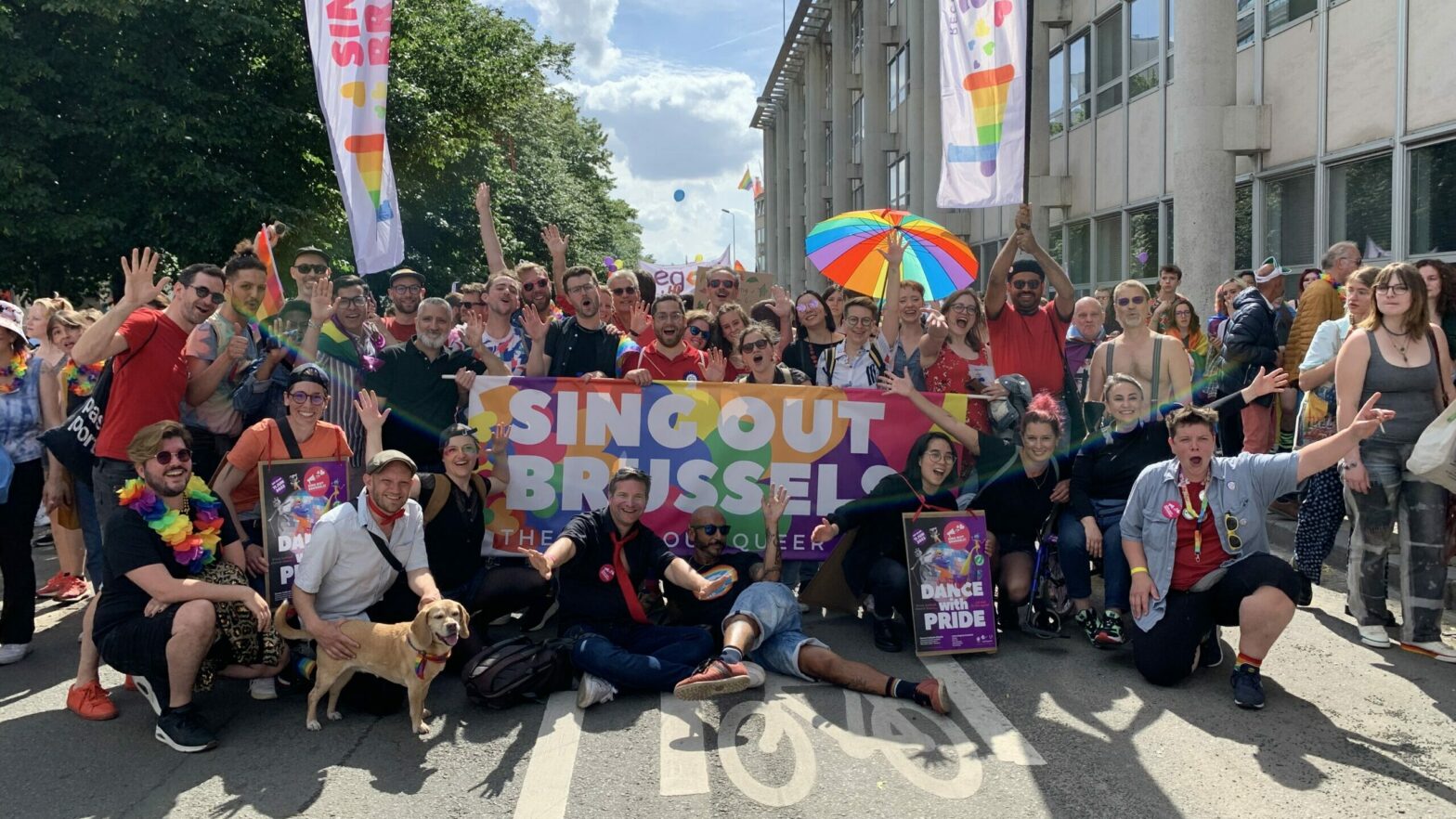Belgian Pride gathered 120,000 people on May 21st. Sing Out Brussels! took part in the Parade by singing. Two singers share their feelings after this day.
Before the start of the Parade, our music video In these Heels was shown on the main stage at Mont des Arts.
The choir then took its place in the Parade, singing.
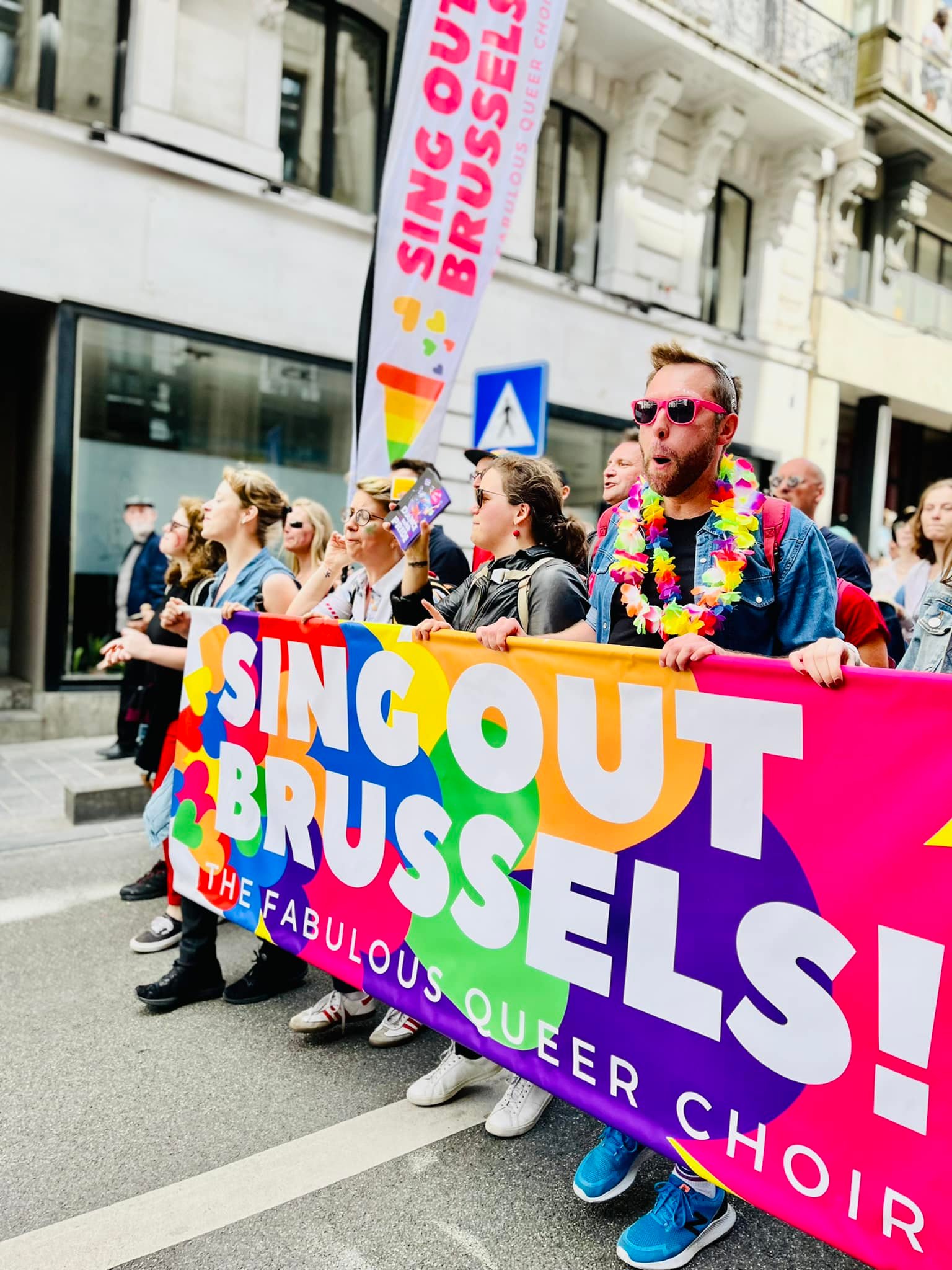
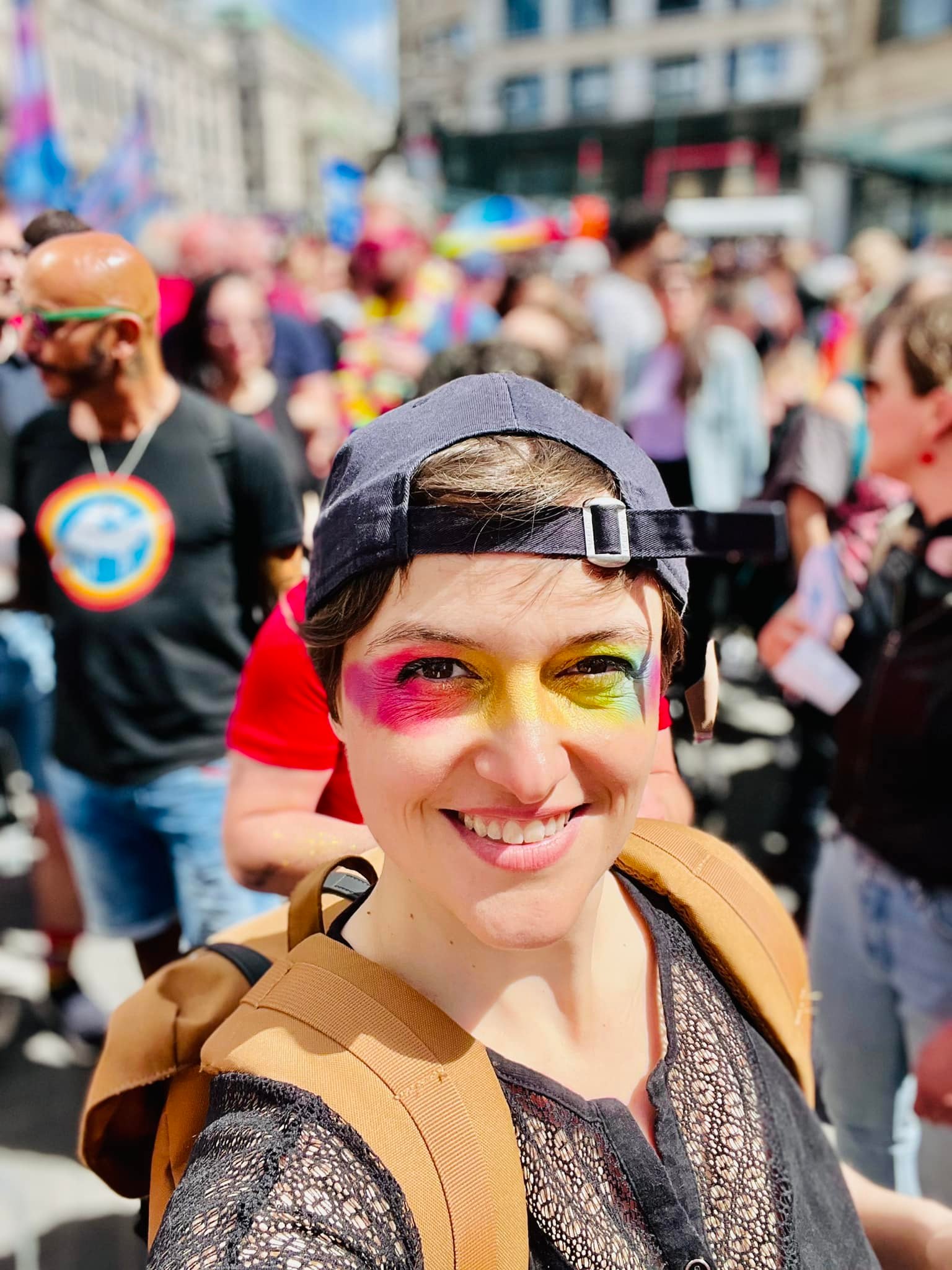
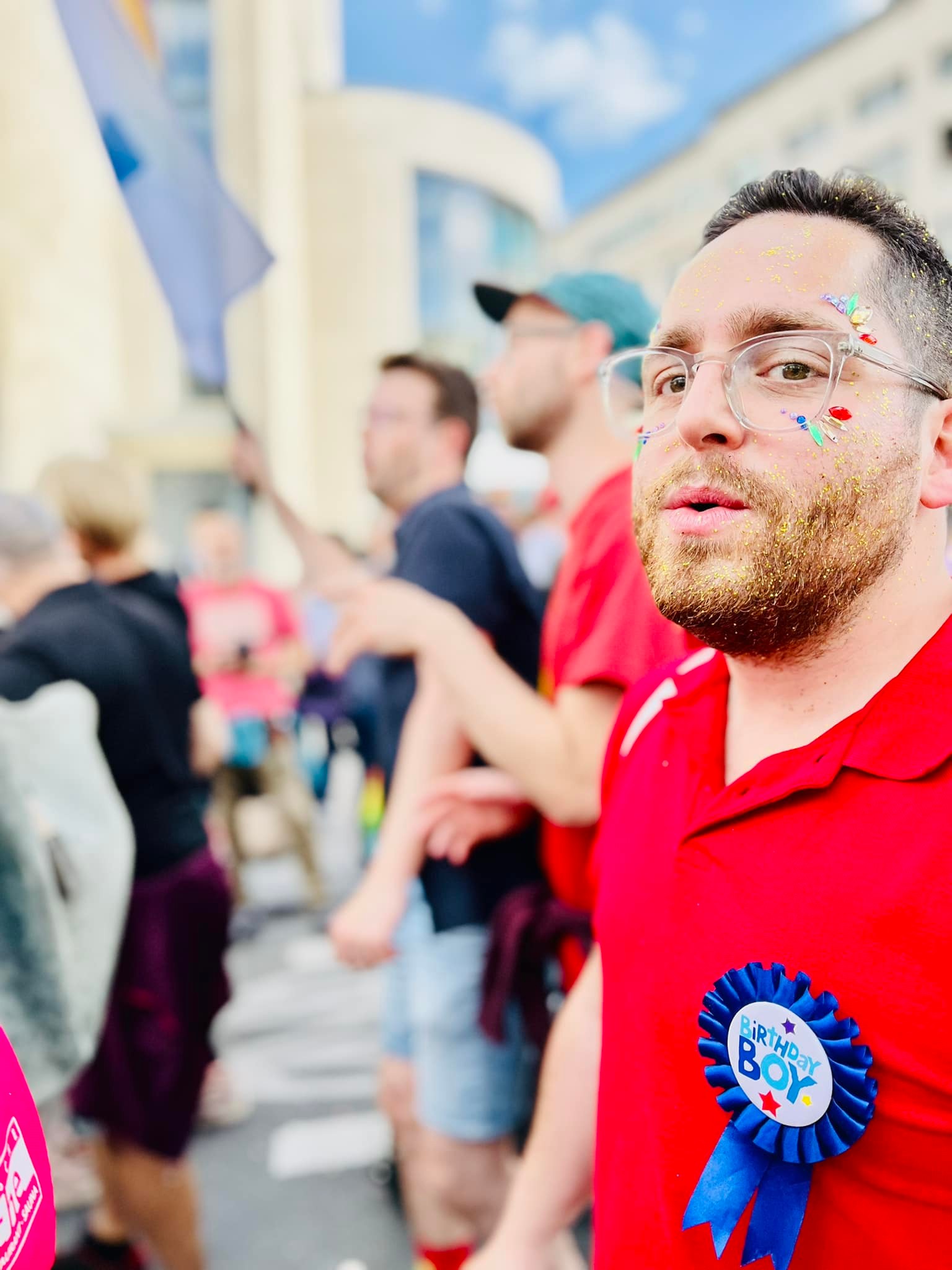
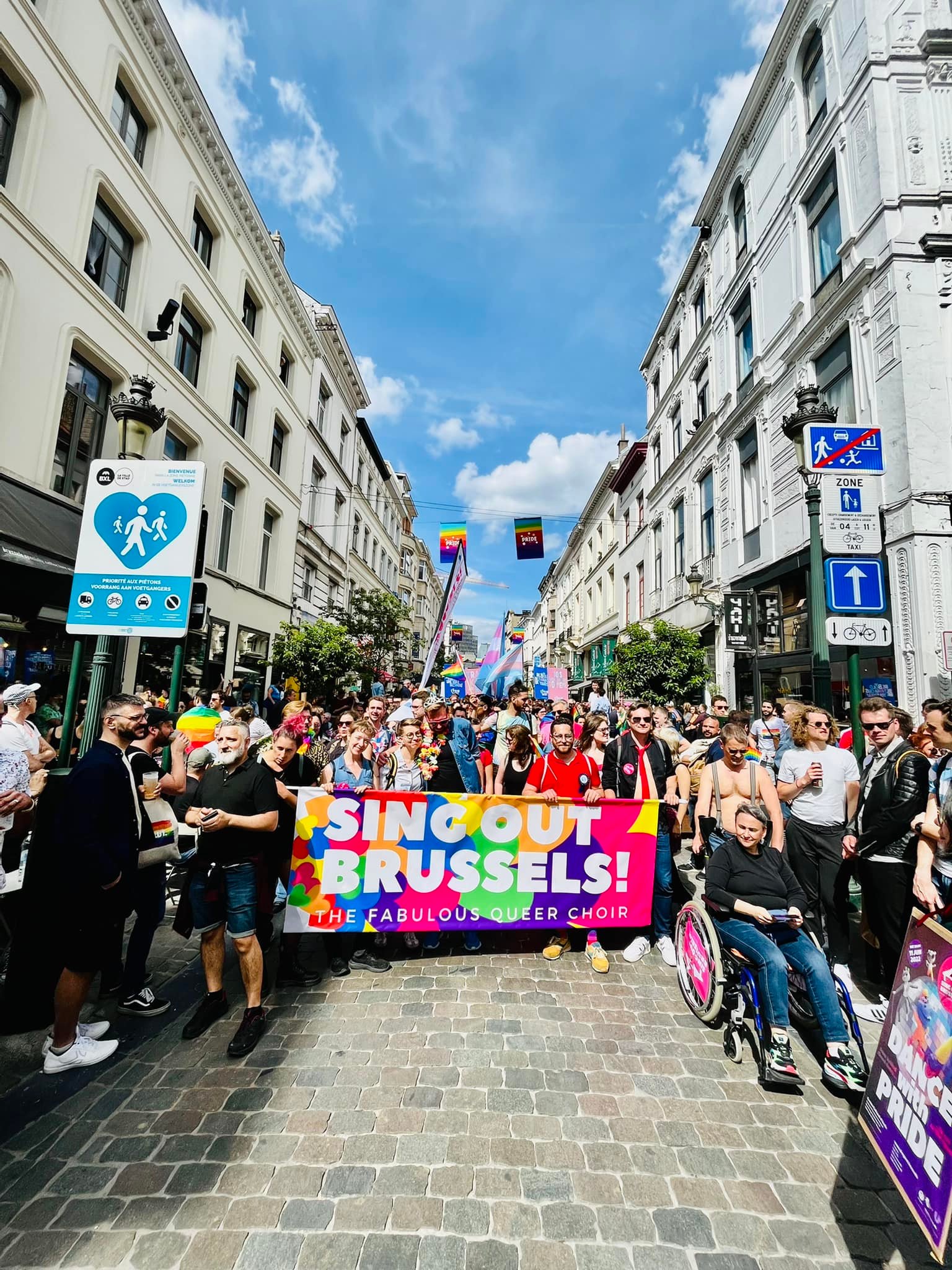
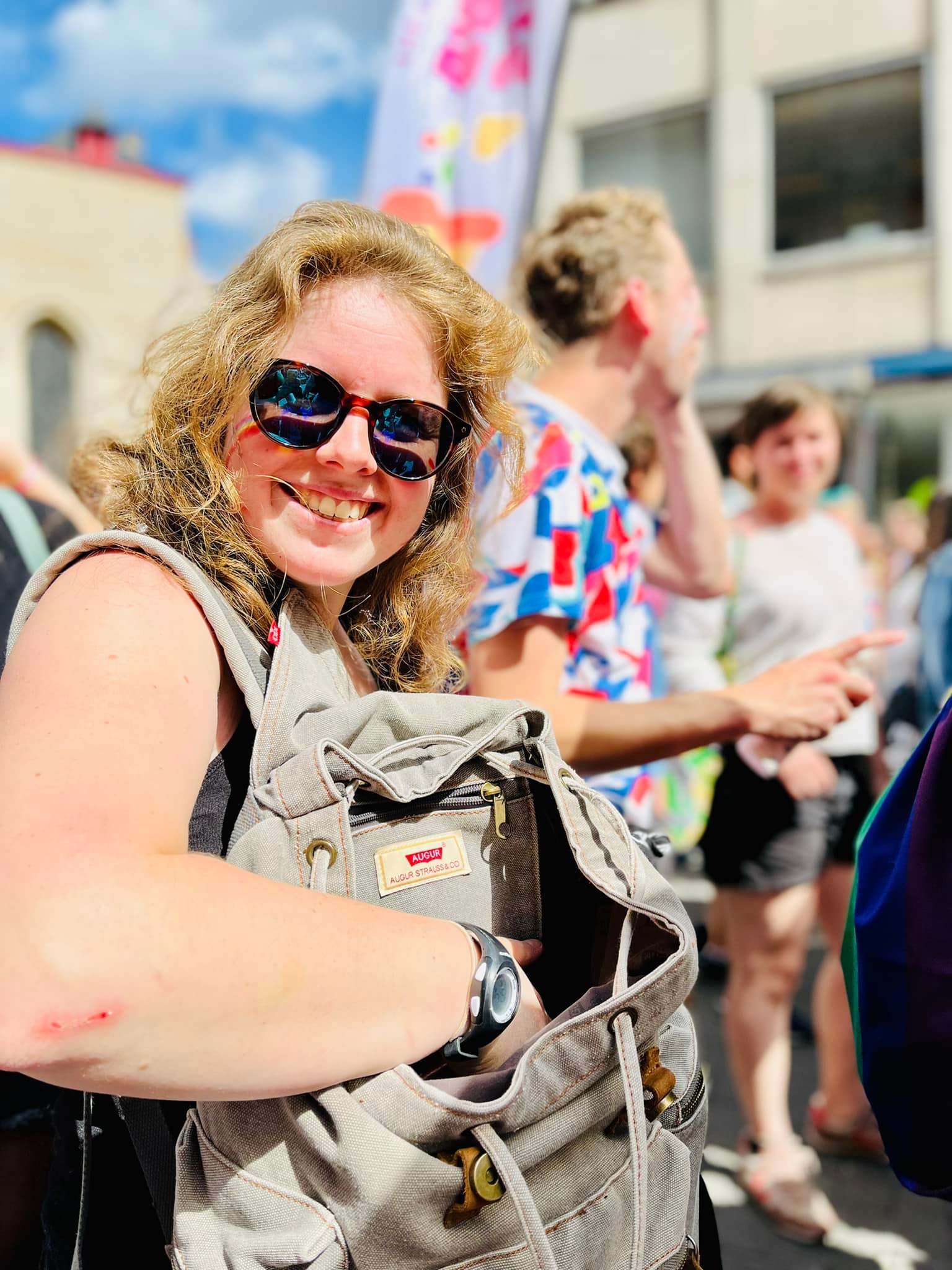
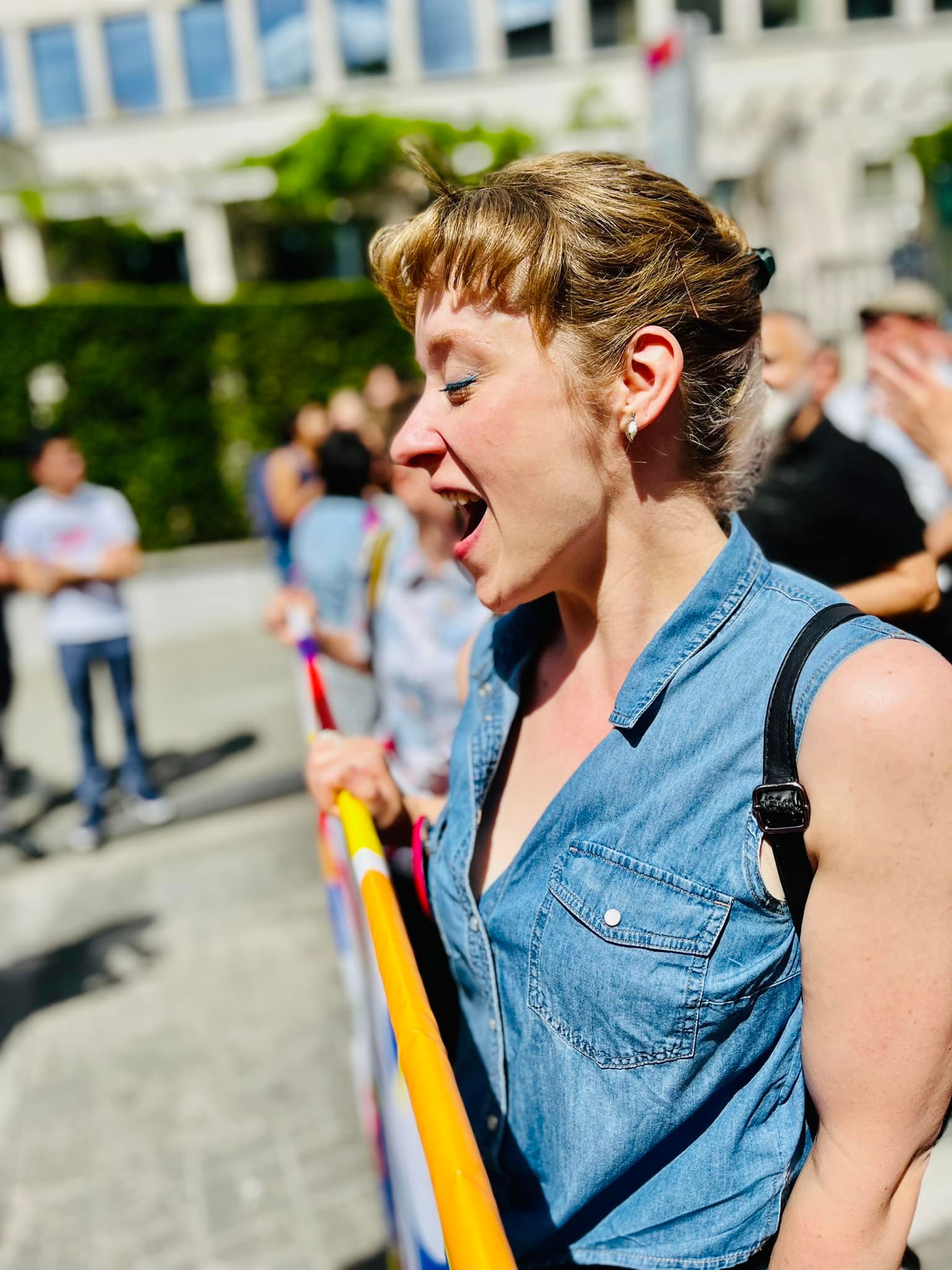
Antoine, bass : « I never really liked pride, the crowd frightens me, I’ve always felt (ridiculously though !) too queer/quaint for those groups, different but without the fierce flamboyance of some others people marching. This time I felt so free and joyful, protected by the choir, surrounded by my peers, dancing, singing, smiling, being so f**g alive. And yet right in the eye of the hurricane, within the parade. Right where I belong ».
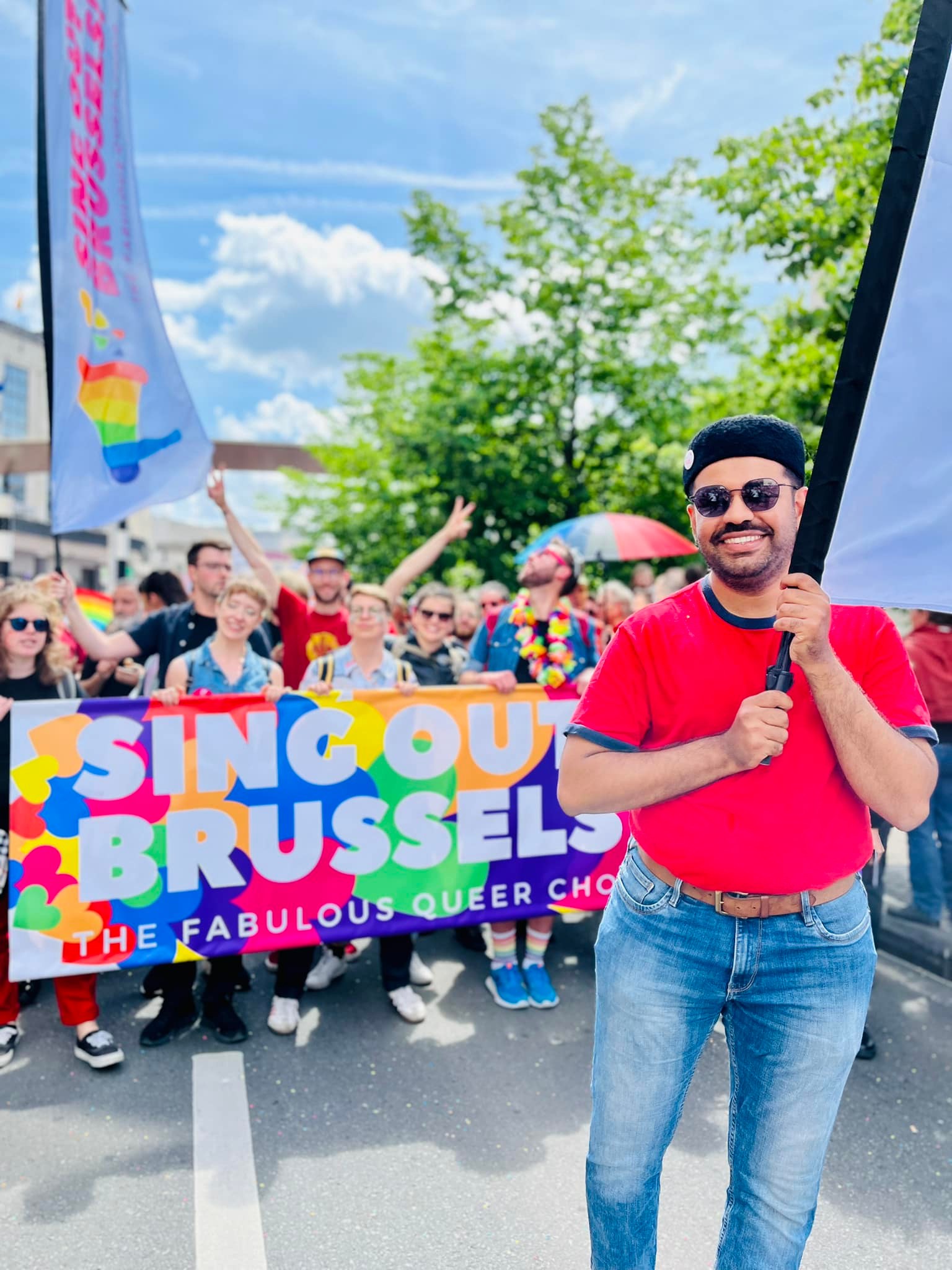
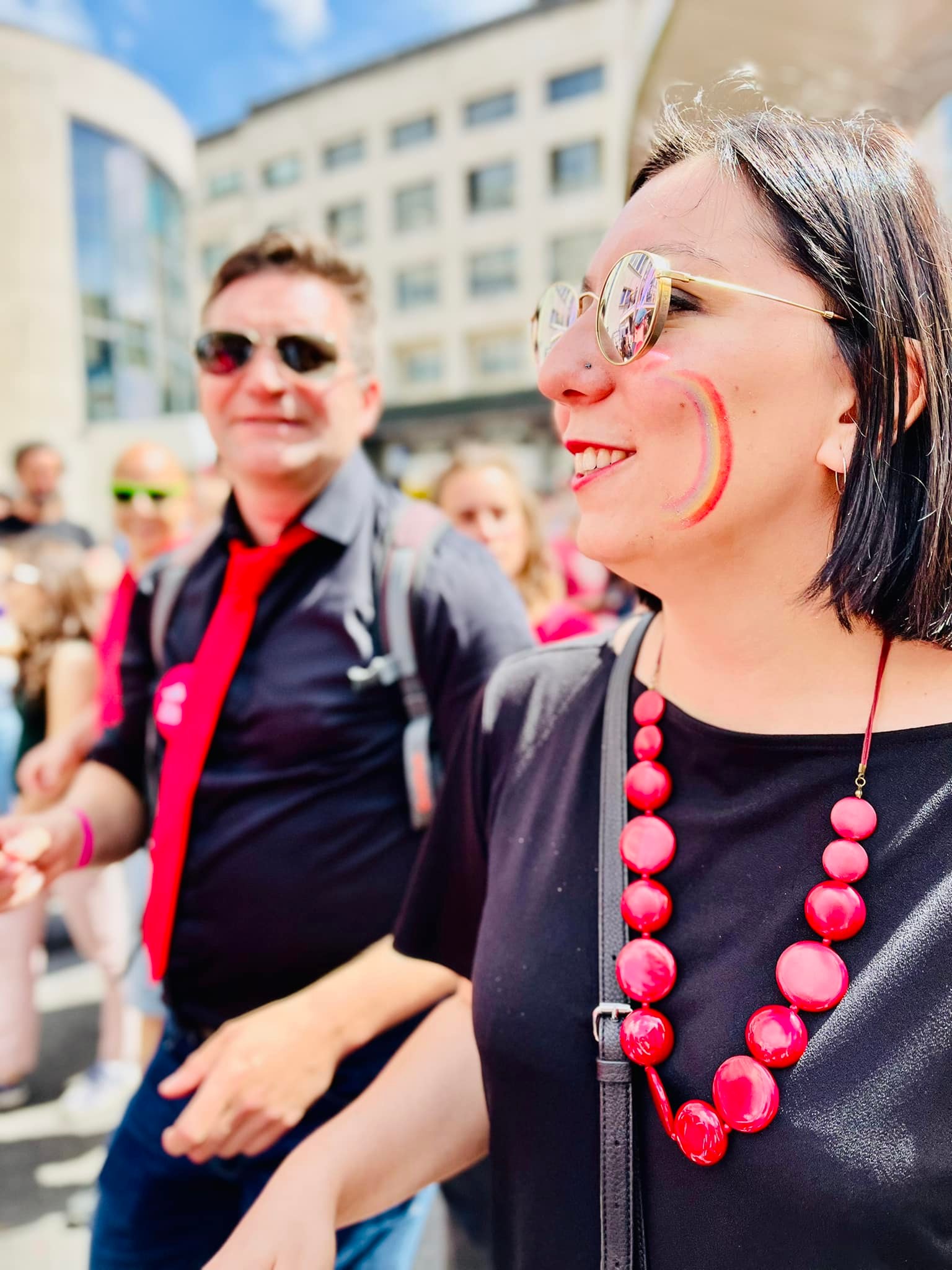
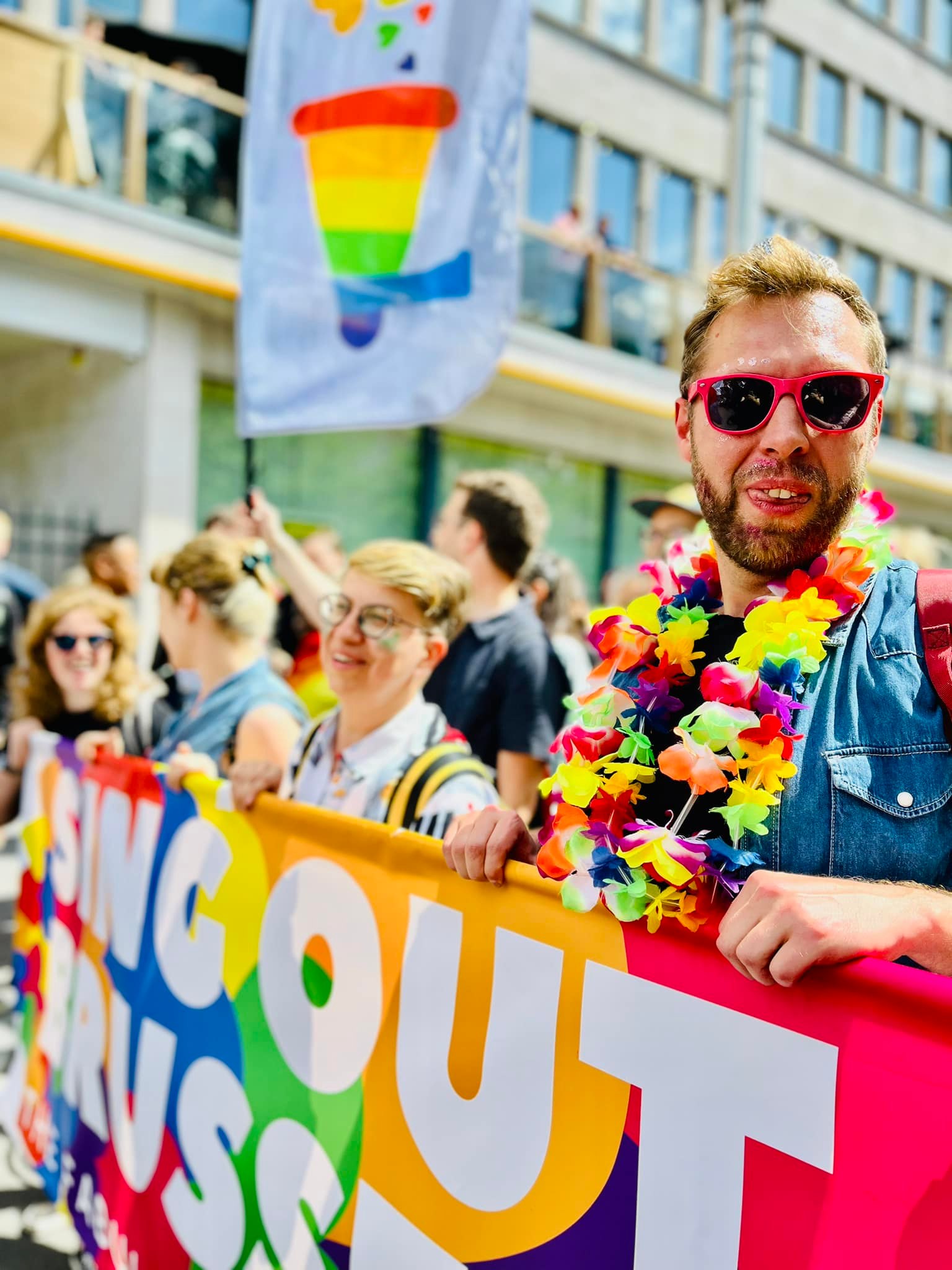
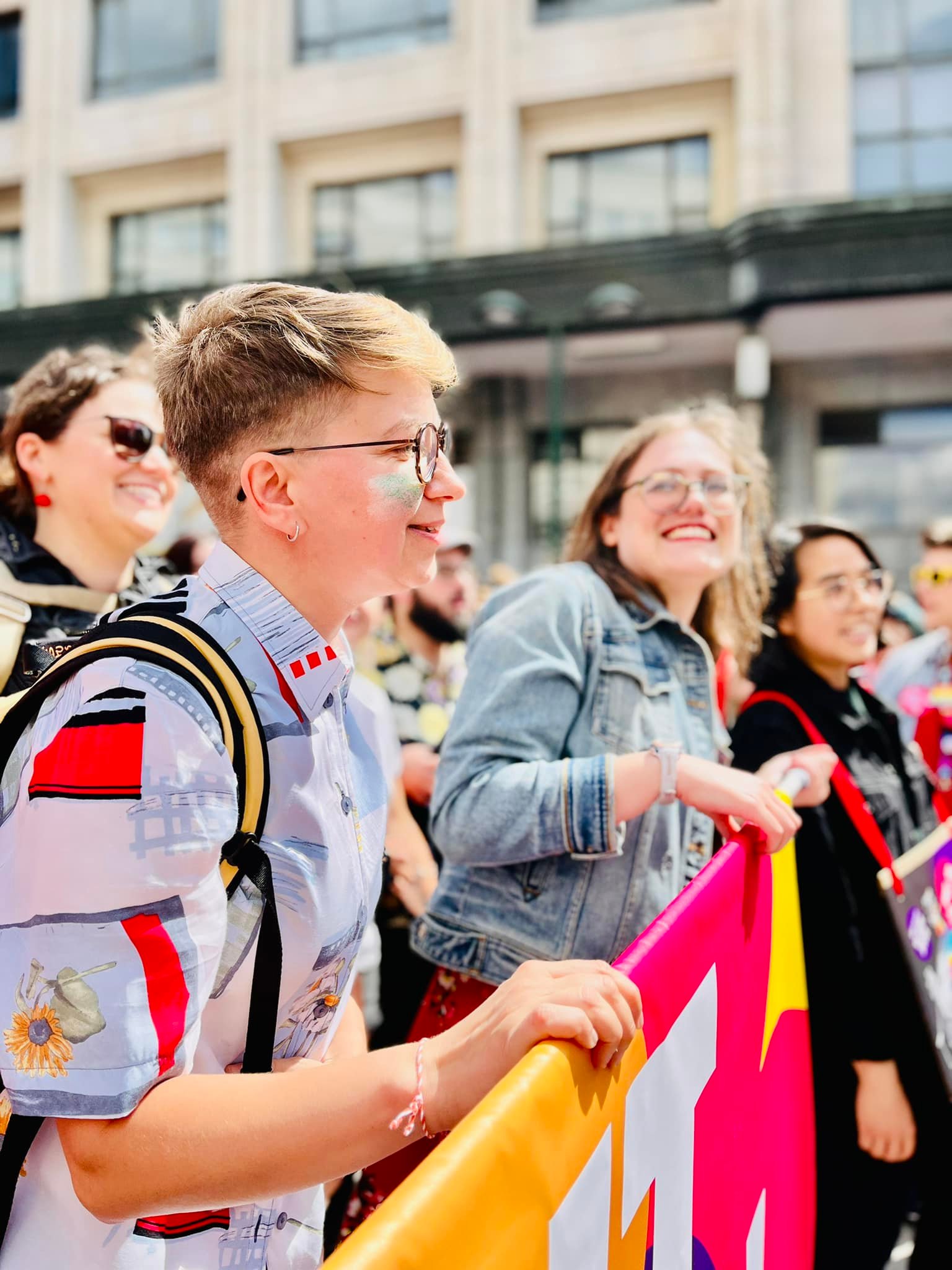
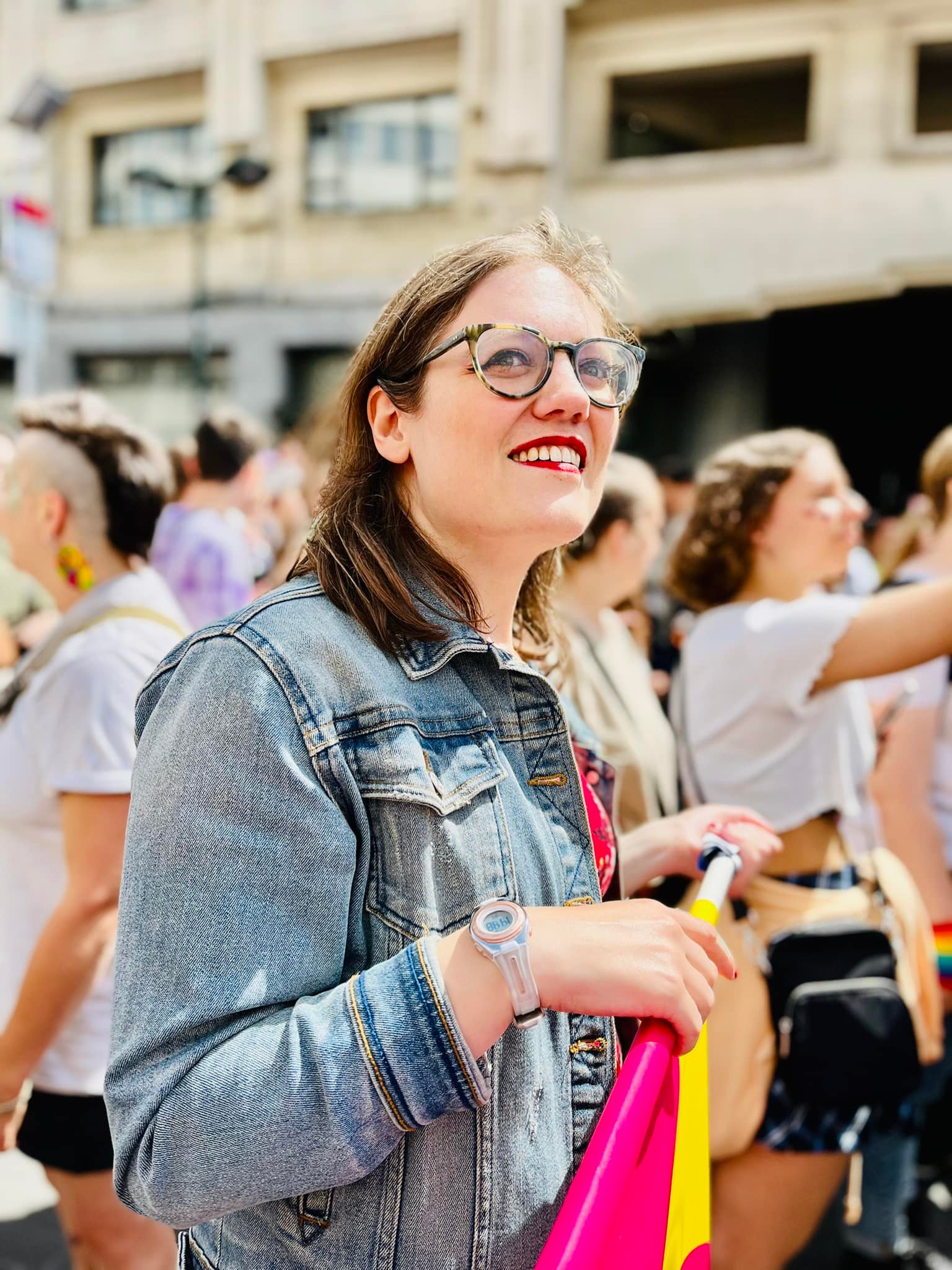
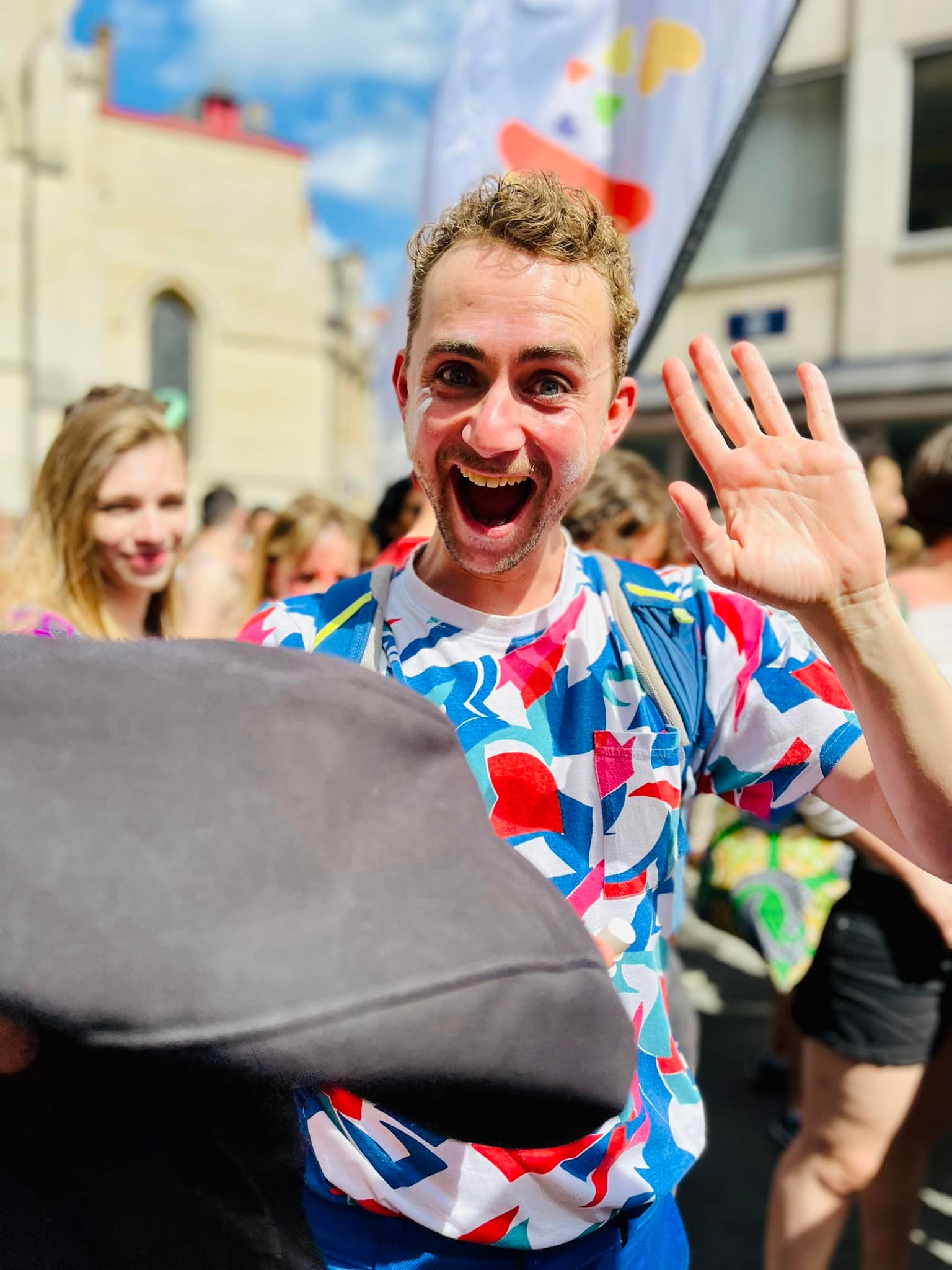
Nadz, alto : “I was getting late. I was coming on a train from Ghent with a bunch of colourful young queers. “They will know where to go” – I thought. “But how would I find my people” – I worried. I emerged from the Brussels Central Station and there they were just in front of me in the thickness of an electrified impatient crowd, holding high a banner with Sing Our Brussels! sign, proud and ready to move. I ran to them and joined them just on time. A minute later, the parade kicked off. We marched and we sang. Many people in the crowd sang along, some stepped forward and danced, others came closer to ask about the choir. I think for the first time I understood what Pride could mean, how it could feel – for me, but maybe for others as well. Joining this Pride was not an easy or obvious decision for me. My previous experiences were tinged with bitterness and disillusionment – Vilnius in 2010 (volatile and hostile), Johannesburg in 2012 (apolitical and overly white), London in 2018 (commercialised and hijacked by TERFs). In all these cities I was a newcomer looking for a place to go, to belong. And yet attending the Pride felt alienating. I struggled to see the political message or appreciate the celebration. I felt too (in)visible, too foreign, not queer enough, not quite fitting in. Yesterday was different. I don’t think the Pride itself was any different from many other such events. But being with the choir, singing with these particular people, marching with them in this moment of my life was exhilarating, liberating, healing. The instance I joined our column I just fitted in, I found my place with ease as if it was there for me. And this is something that is not a given. I realised yesterday that the choir – as I experience it -creates this consistent caring presence, an accepting space that I lacked, and many queer people are still lacking, in our immediate surroundings, in our families, in schools, in universities, on the streets, at our workplaces. I was looking around while we were marching and singing – Transkids Belgique behind us, queer people and allies of all shapes and ages around us, many young people with excitement in their eyes. And I felt how joy can be revolutionary and still is for many, how belonging is still longed for and how acceptance and recognition can repair – even if for a brief moment – the long lasting damage done by a wider society. I searched for people who looked or felt like me in this crowd – those heartbroken and yet joyful, those who maybe have fallen apart recently and were picked up and hold by their friends and peers, those who lived through rejections (so many, all of us) and died internally many times and resurrected, those who chose to sing and rejoice through singing (…).

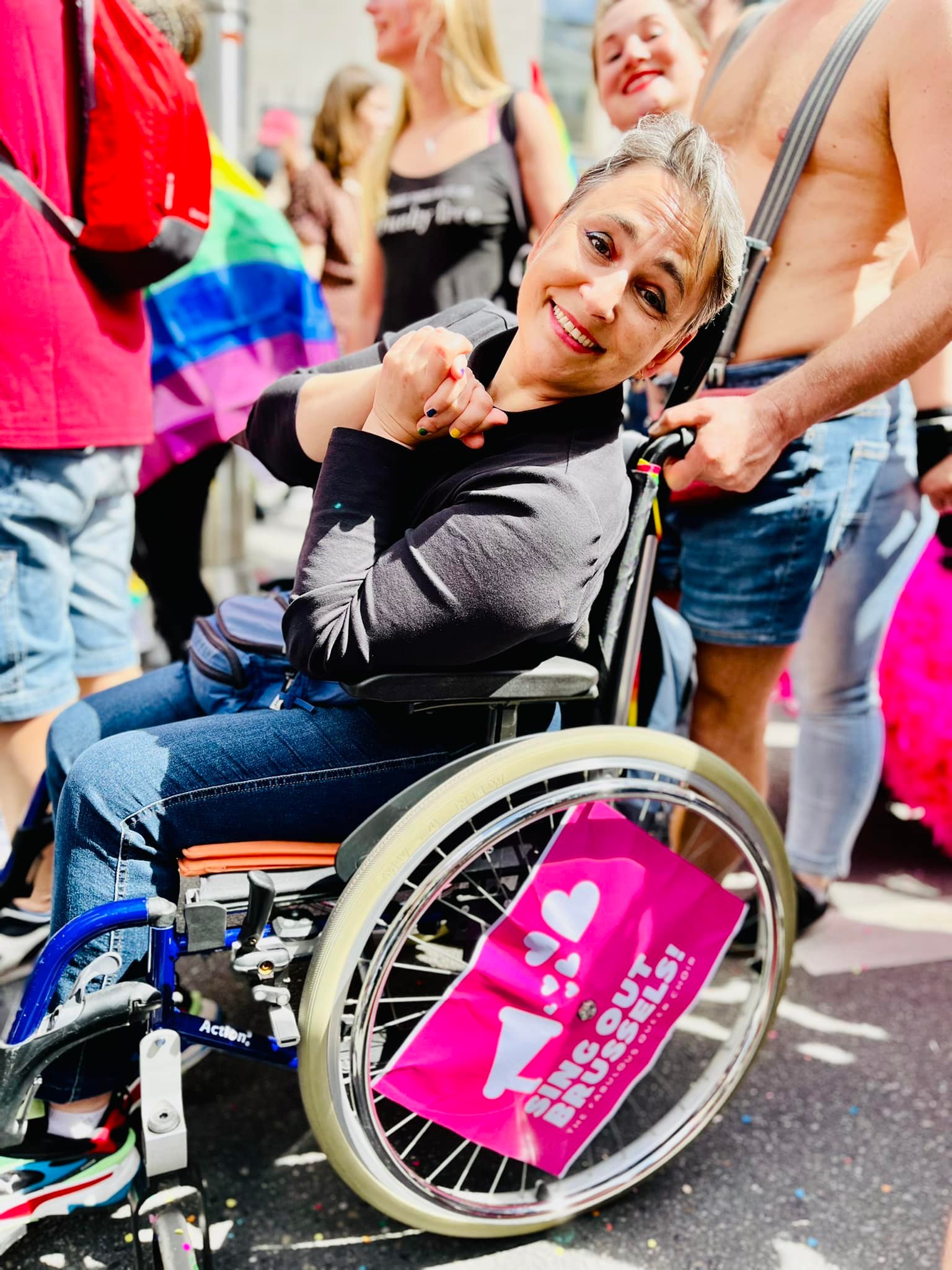

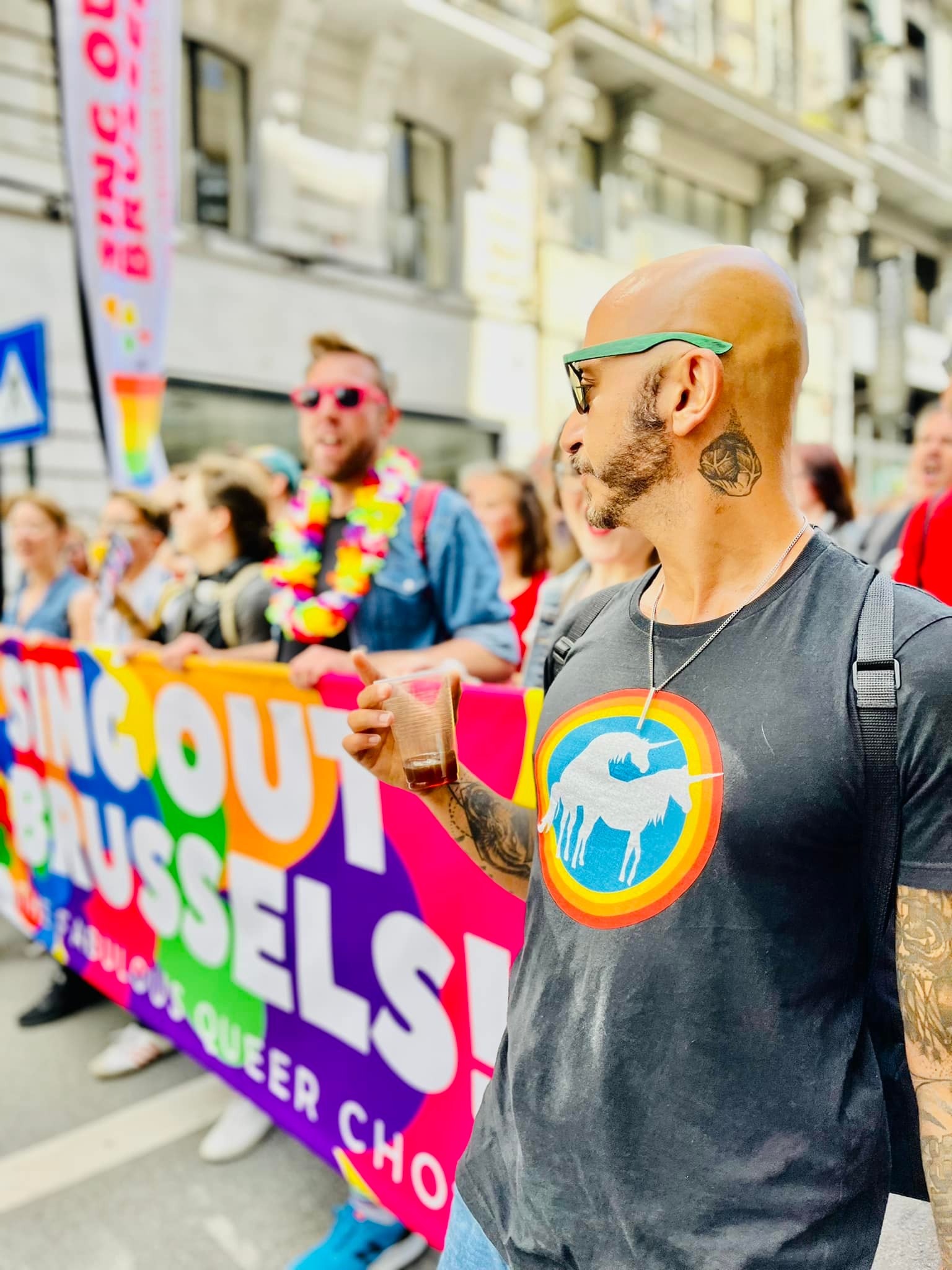
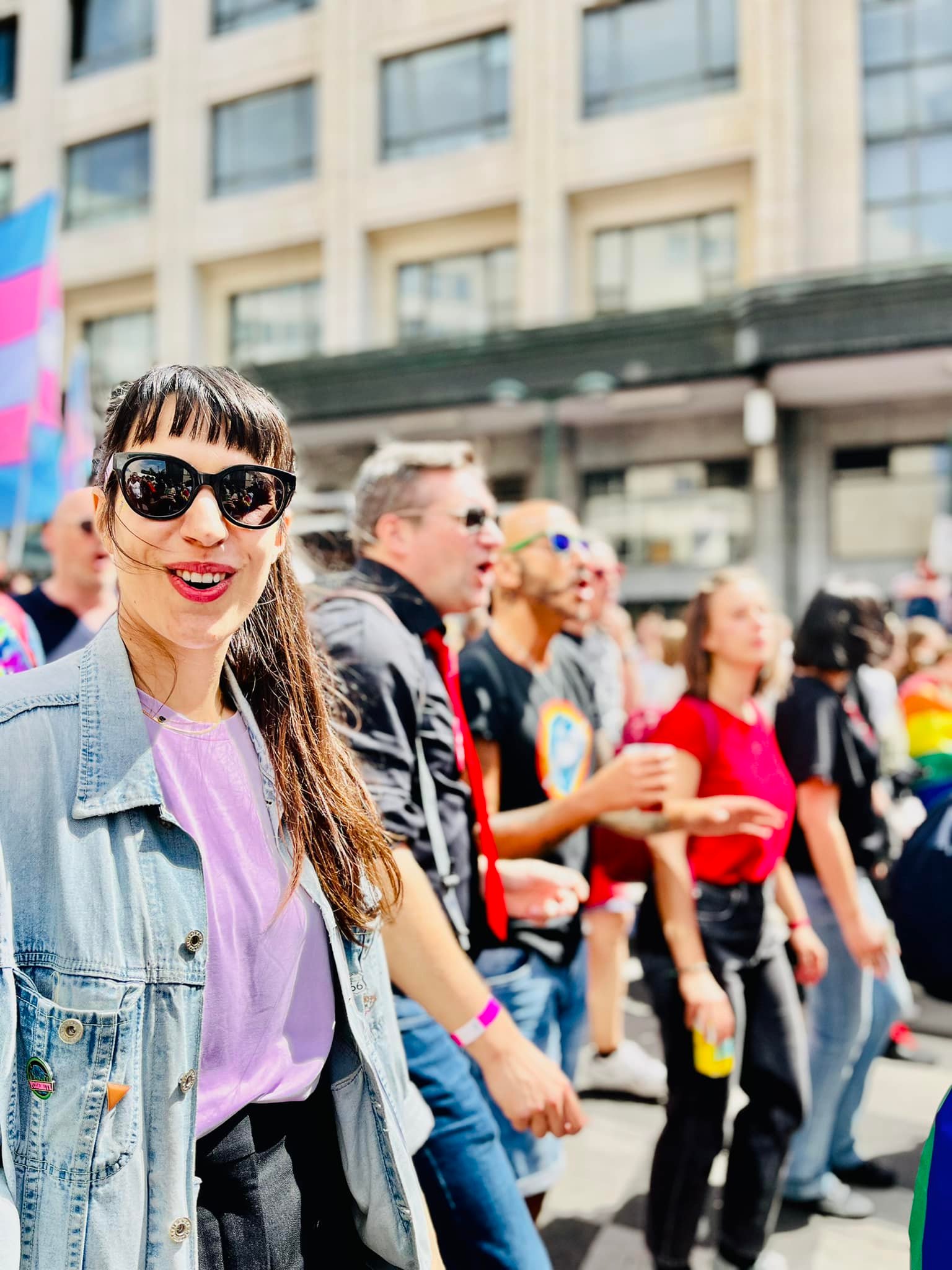
(…) “Singing is an embodied performative practice of resilience. I felt it yesterday viscerally. Singing in a group, singing on the streets is a form of collective unwavering perseverance. It’s like gathering around the table – for food, for talk, for prayer. It’s a continuing recreation of belonging, a ritual of showing up and being together. Singing together is repetitive (but never the same), it’s familiar, impermanent and imperfect – like family, like home. And this is the transformative beauty of it. When you sing, you never alone, you co-exist and this bond can’t be undone. This is why I am drawn back to the choir, why I keep coming to and singing on Wednesdays rehearsals. This is why yesterday I rushed from Ghent to join my queer choir in the Brussels Pride”.

